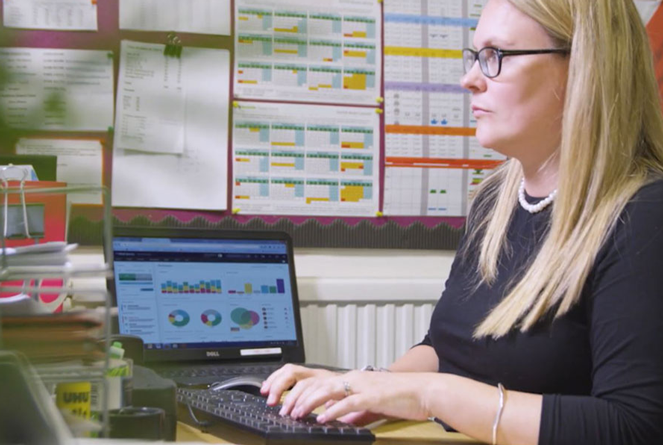Navigating the Absence of KS2 Data in Years 10-11
It seems like such a long time ago now that the world as we knew it stopped due to the pandemic, though we are still feeling the impact of it in many aspects of life. One impact that is particularly relevant to schools is the absence of KS2 data in the form of ‘Scaled Scores’ for pupils currently in Years 10 and 11.
One of the most common questions schools ask is, “What should I use in Sisra for my current Year 10 and Year 11 students who don’t have any KS2 data?”
While most schools typically utilise KS2 data for target setting to achieve positive Progress 8 outcomes, the DfE neither prescribes specific target-setting methods nor offers official guidance for Year 10 and Year 11 students lacking KS2 data, including progress measurement.
Click here to download the free checklist: Managing the Absence of KS2 Data in Years 10-11.
Customised Target-Setting Methods in Schools
Individual schools will have chosen their own method for target setting; some will have used CAT4 or other baseline test data and uploaded this to FFT to generate targets, and some will have looked at similar students in other year groups to ascertain the most appropriate targets. Other schools may have based their targets purely on the individual students’ attainment and likely progression.
Using CAT4 and Baseline Tests for Year 10-11 Students
If your school has used CAT4 or other baseline tests which provide a retrospective indication of what the KS2 scaled scores might have been, you can upload these to Sisra Analytics in the same way as you would for a cohort with official scaled scores (if you're already a Sisra Analytics customer, you can click here for a reminder on how to do this).
You will then be able to view Progress 8 and Subject Progress Index (SPI) figures for these cohorts (based on your generated KS2 scores), keeping in mind that the SPI comparison is to Sisra schools that opted into our Data Collaboration in 2024, rather than all schools that the DfE report on.
Figure 1: Sisra Analytics Headline View

Figure 2: Sisra Analytics Subject Progress Index
Expected Attainment Pathways (EAPs) and Target-Based EAPs
For schools who use KS2 data as the baseline for their Expected Attainment Pathways (EAPs), you can use the retrospective KS2 data in the same way if you choose to continue with this method. Alternatively, you are able to use your baseline test data (our video here will provide more detail, also see Figure 3 below), or you may wish to explore creating Target Based EAPs. These are so useful if your students have individual targets in different subjects and, when populated, provide additional analysis in the reports.

Figure 3: Flatline EAP based on performance in CAT4 tests.
Creating Retrospective KS2 Data: A School's Solution
If you do not have any retrospective KS2 scaled scores, you may be able to create these within the school by comparing them to similar students in other cohorts with KS2 data.
If you cannot access or choose not to have retrospective KS2 data, these cohorts do not need any KS2 data to be uploaded. You can publish your reports in the same way as you would for other cohorts, but you will not have any figures in the reports area for KS2 prior attainment, which include Attainment 8 estimates, Progress 8, SPI and Value Added.
If you have completed baseline tests with your students, you could also band them however you choose and upload this band alongside your student data to allow further analysis broken down by prior attainment group.
Click here to download the free checklist: Managing the Absence of KS2 Data in Years 10-11.

Figure 4: Subject analysis broken down by performance in CAT4 tests.
Avoiding Inaccuracies: No KS2 Data for Some Cohorts
Please note: For all cohorts other than 24/25 and 25/26, you should never put a KS2 score in Sisra for a student who doesn’t have one. The DfE will not report Progress 8 for students without KS2 data, and you will therefore produce an inaccurate reflection of your cohort by including results which do not exist.
If you want to find out what other schools use instead of KS2 data, why not join the discussion on our School Data Management Facebook page
If you're a customer, you can also contact the Sisra Support team via the Live Chat button within Sisra Analytics.
Alternatively, if you'd like to learn how to fill the KS2 data gap in your secondary school, book a demo with our team, and we'll show you how.


/Primary%20school%20.jpg?width=2000&name=Primary%20school%20.jpg)








.png?width=940&height=788&name=Lingfield%20College%20Case%20Study%20(5).png)
-1.png?width=1000&height=833&name=National%20Association%20of%20Head%20Teachers%20(3)-1.png)
-3.png?width=1080&height=1080&name=Untitled%20design%20(10)-3.png)





